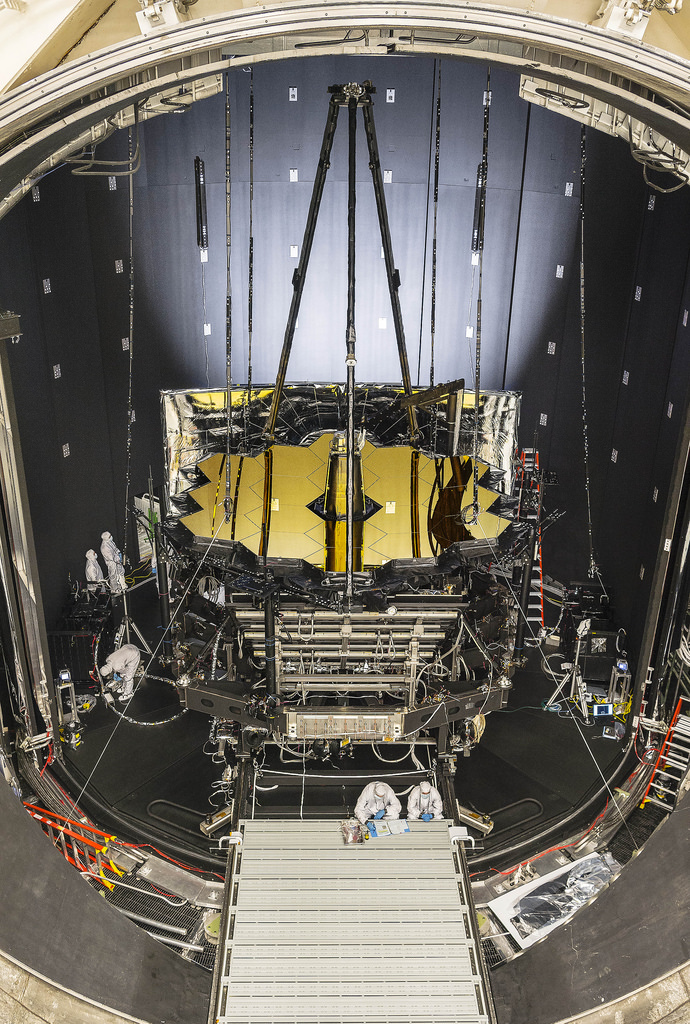JWST Launch Delayed, Will Remain Within Cost Cap
Ashlee Wilkins
NASA announced on 28 September that the James Webb Space Telescope (JWST) will launch between March and June 2019, several months later than the October 2018 target launch date. The launch date delay will require the project to dip into its budget reserves, but those reserves were built into the $8 billion cost cap set by Congress for JWST development in 2011; JWST is therefore still on track to remain within this federally-mandated limit set by law. 
JWST and the BepiColombo mission, led by the European Space Agency (ESA) in cooperation with Japan Aerospace Exoploration Agency (JAXA), had both been scheduled to launch from the Guiana Space Centre in Kourou, French Guiana, on ESA-provided Ariane 5 rockets. BepiColombo, Europe's first mission to Mercury, must launch between 5 October and 28 November 2018 in order to achieve its complex orbital trajectory, which includes an Earth flyby, two Venus flybys, and six Mercury flybys before capture into a Mercury orbit. In contrast, JWST has a much less constrained launch window (for detail, see Figure 5 of this report) to allow the spacecraft to reach the Earth-Sun second Lagrange point (L2). The two spacecraft cannot occupy the launch pad at the same time, and both, being relatively large, require months of on-site preparation; therefore, only one mission would be able to meet its October 2018 launch target, and that mission will be BepiColombo. JWST will follow in the spring.
Currently, JWST's telescope assembly (the optics and instrument module) are in vacuum in Chamber A of NASA's Johnson Space Center. The chamber is being warmed back up from the cryogenic temperature (20 K), simulating the space environment in which JWST will operate. JWST will next travel to Northrup Grumman's testing facility for full integration with the spacecraft bus and sunshield components. The integration of the bus and sunshield at Northrup Grumman have taken longer than expected, and the integration of the spacecraft and the telescope will benefit from the extra time afforded from the launch delay.
The Space Telescope Science Institute (STScI) announced today via email that the deadline for JWST Cycle 1 General Observer (GO) proposal submission remains unchanged as 2 March 2018. The Telescope Allocation Committee will meet to review the proposals at STScI during the last two weeks of June. The results will be announced in July 2018.

